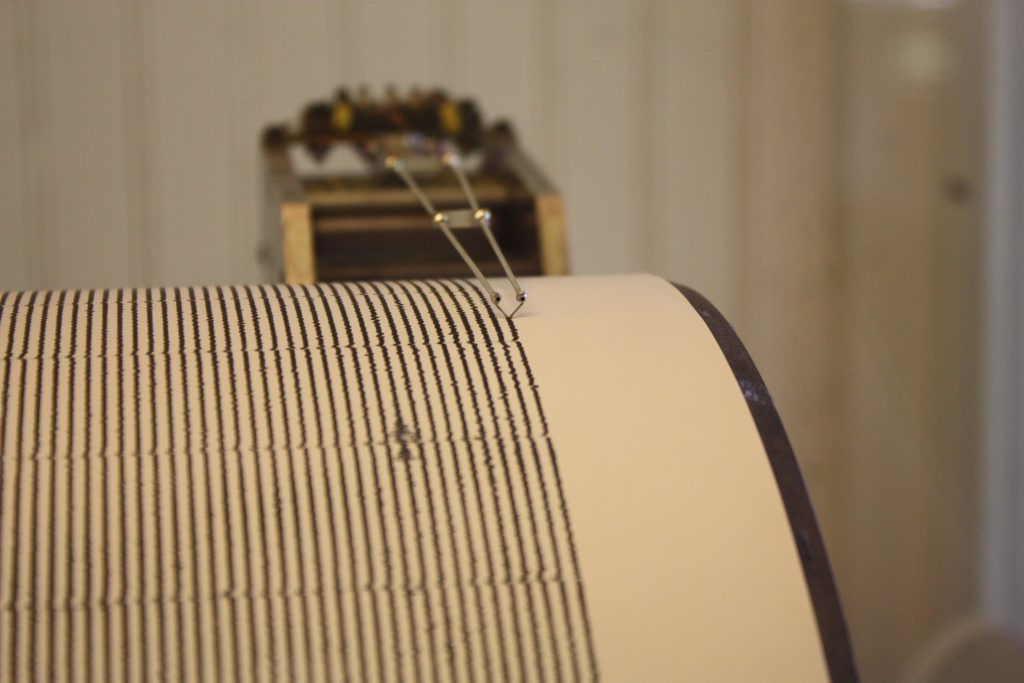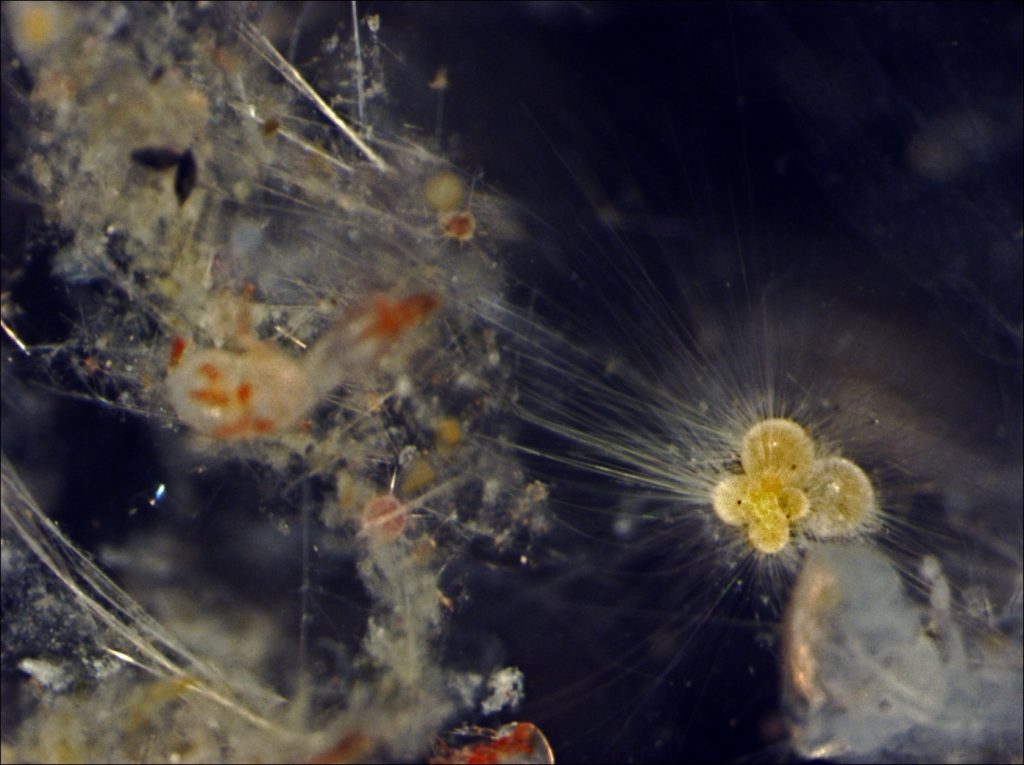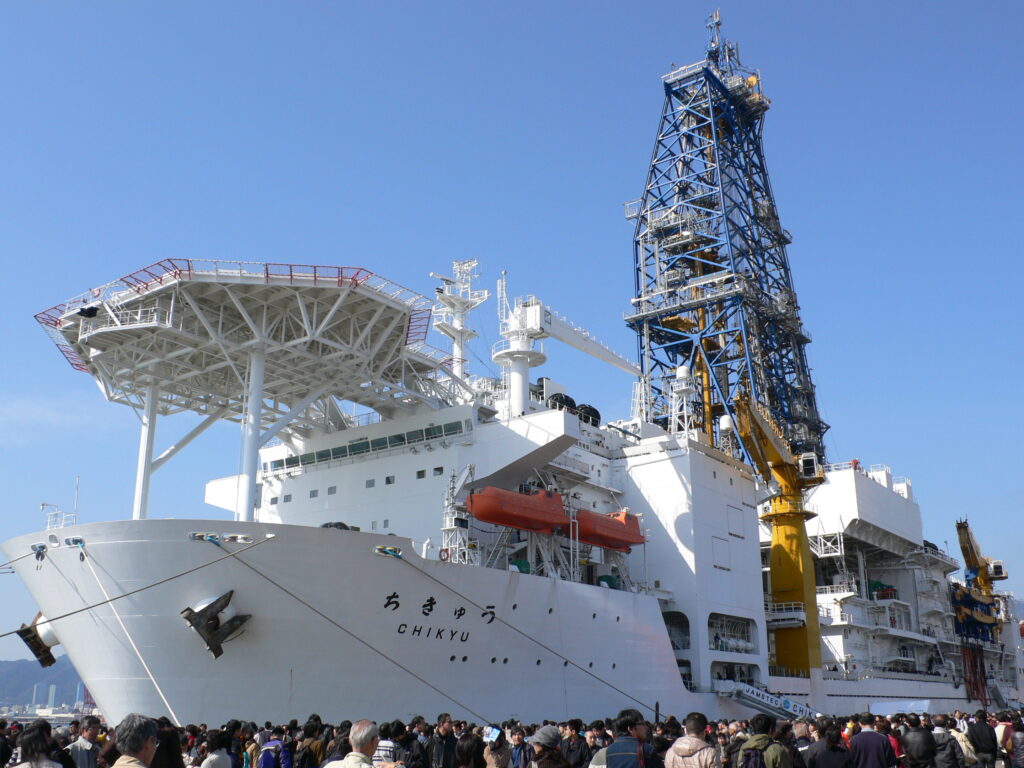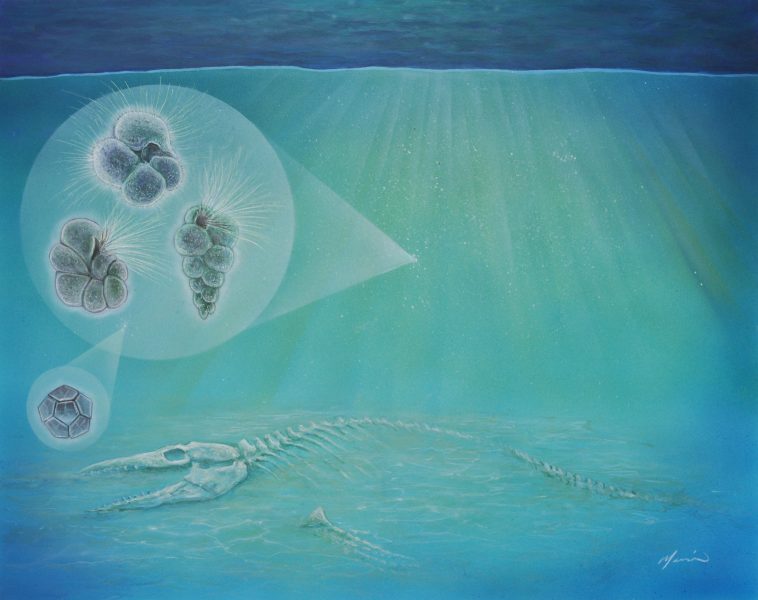An everyday quirk of physics could be an important missing piece in scientists’ efforts to predict the world’s most powerful earthquakes. In a study published in the journal Science, researchers at The University of Texas at Austin discovered that a frictional phenomenon could be key to understanding when and how violently faults move. That’s because… Continue Reading Earthquake Scientists Have a New Tool in the Race to Find the Next Big One
Climate Change Could Cause Mass Exodus of Tropical Plankton
The tropical oceans are home to the most diverse plankton populations on Earth, where they form the base of marine food chains. Modern plankton biodiversity in the tropics is a surprisingly recent development and the result of 8 million years of global cooling, according to a study led by researchers at The University of Texas… Continue Reading Climate Change Could Cause Mass Exodus of Tropical Plankton
Deepest Scientific Ocean Drilling Sheds Light on Japan’s Next Great Earthquake
Scientists who drilled deeper into an undersea earthquake fault than ever before have found that the tectonic stress in Japan’s Nankai subduction zone is less than expected, according to a study from researchers at The University of Texas at Austin and University of Washington. The findings, published in the journal Geology, are a puzzle because… Continue Reading Deepest Scientific Ocean Drilling Sheds Light on Japan’s Next Great Earthquake
Asteroid Dust Found in Crater Closes Case of Dinosaur Extinction
Researchers believe they have closed the case of what killed the dinosaurs, definitively linking their extinction with an asteroid that slammed into Earth 66 million years ago by finding a key piece of evidence: asteroid dust inside the impact crater. Death by asteroid rather than by a series of volcanic eruptions or some other global… Continue Reading Asteroid Dust Found in Crater Closes Case of Dinosaur Extinction
Life Recovered Rapidly at Impact Site of Dino-Killing Asteroid
About 66 million years ago, an asteroid smashed into Earth, triggering a mass extinction that ended the reign of the dinosaurs and snuffed out 75 percent of life. Although the asteroid killed off species, new research led by The University of Texas at Austin has found that the crater it left behind was home to… Continue Reading Life Recovered Rapidly at Impact Site of Dino-Killing Asteroid





